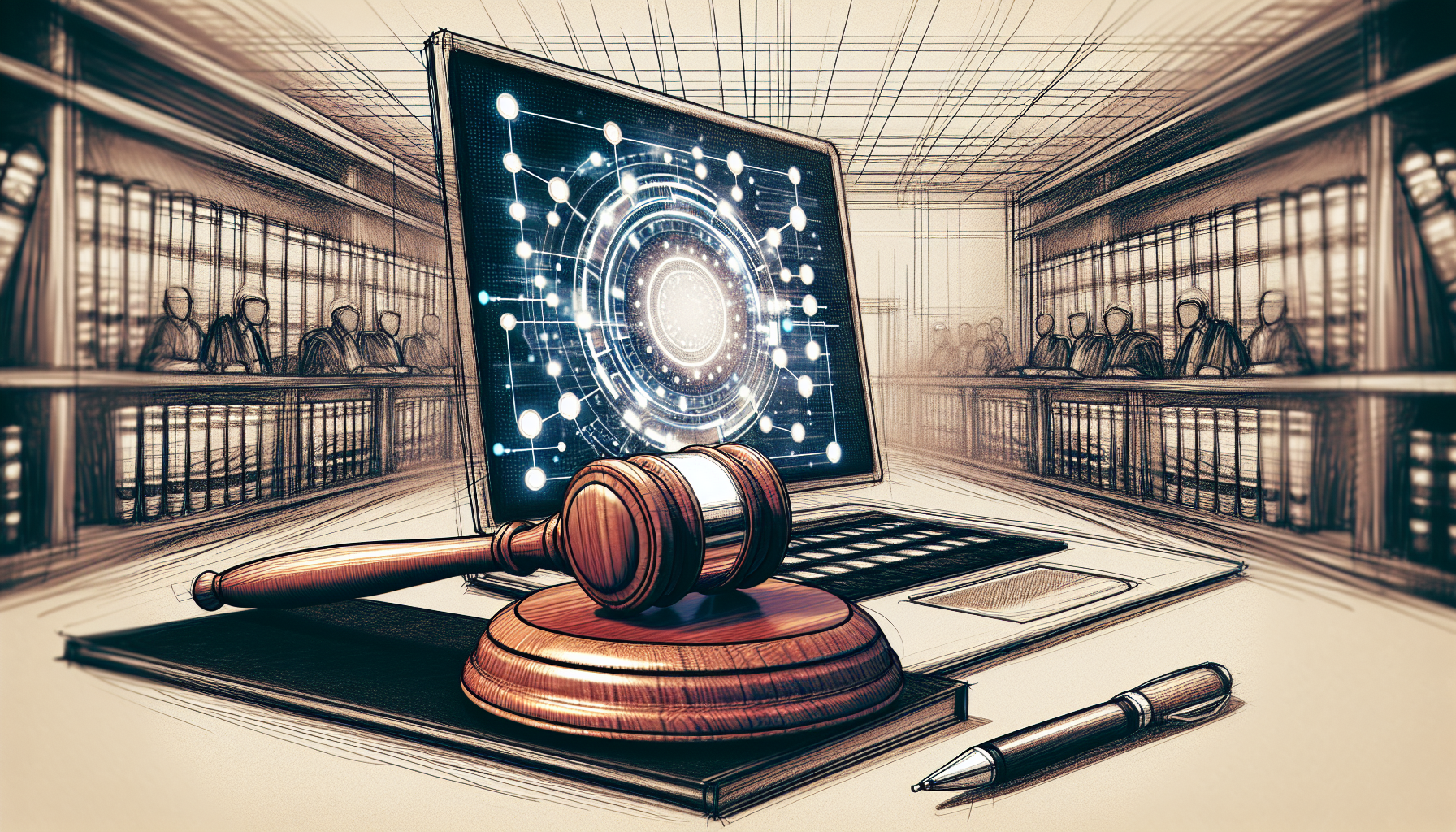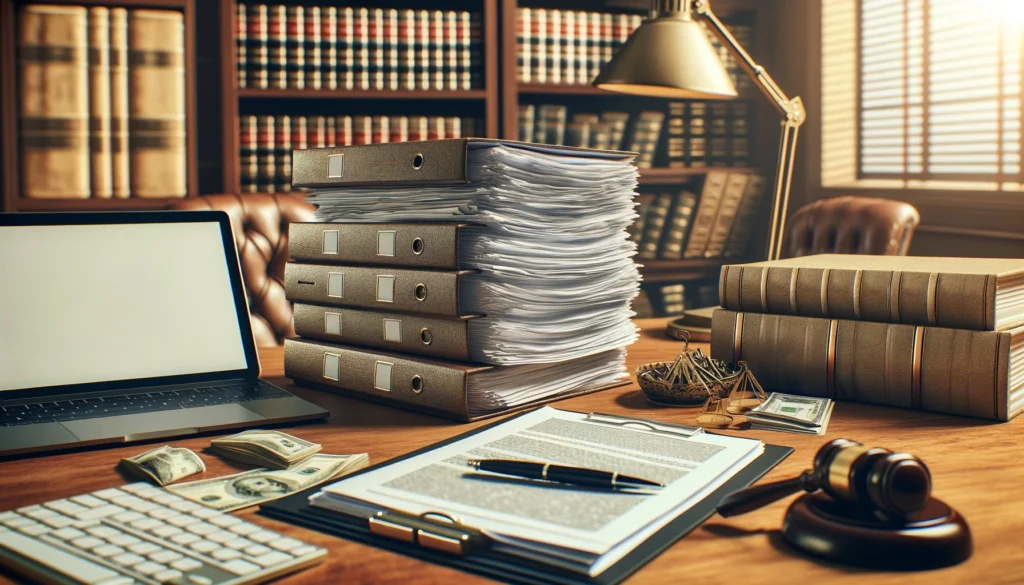
Empowering Paralegals with AI: A New Era in Personal Injury Law
The integration of AI tools like ChatGPT is revolutionizing personal injury law, bringing a new era of efficiency and accuracy. Paralegals are at the forefront of this transformation, leveraging AI to handle routine tasks, streamline processes, and enhance client services.
Foundations: Understanding ChatGPT and Its Potential in Legal Work
Before diving into the applications, it’s crucial to understand what ChatGPT is and how it can transform legal work.
What is ChatGPT?
ChatGPT is an advanced language model developed by OpenAI. Utilizing deep learning techniques, it processes natural language to understand and generate human-like text, making it a powerful tool in various industries, including law.
How AI can enhance legal processes
- Efficiency: AI can automate repetitive tasks, freeing up paralegals to focus on more complex duties.
- Accuracy: With vast databases at its disposal, AI ensures thorough and precise research.
- Consistency: AI provides standardized responses and documentation, maintaining a high level of quality.
Understanding the foundation of ChatGPT sets the stage for its applications in streamlining client consultations and optimizing legal research.
Also read:
Streamlining Initial Client Consultations
Initial client consultations are pivotal in personal injury cases. AI can significantly refine this process, ensuring thorough and consistent data collection.
Crafting preliminary interview questions
ChatGPT can help craft preliminary questions that are comprehensive and tailored to each case:
Example Prompt: “Generate preliminary questions to understand the client’s accident details, injuries, and potential witnesses.”
Gathering comprehensive and relevant case details
ChatGPT aids in gathering all necessary details, ensuring nothing is overlooked. It can prompt for medical records, police reports, and witness statements:
Example Prompt: “List all the information needed from the client to build a robust personal injury case.”
Ensuring consistency and thoroughness
By using AI, paralegals ensure that every initial consultation is consistent and thorough, reducing the risk of missing critical information:
Example Prompt: “What are the follow-up questions if a client reports loss of income due to injury?”
Streamlined consultations make a significant impact, but AI’s benefits extend further into legal research and statutory analysis.
Also read:
Revolutionizing Legal Research and Statutory Analysis
AI drastically improves the efficiency and accuracy of legal research, a cornerstone of any personal injury case.
Techniques for obtaining relevant statutes and case laws
ChatGPT can quickly sift through legal databases to find relevant statutes and precedents:
Example Prompt: “Find recent case laws related to slip and fall injuries in [jurisdiction].”
Summarizing legal precedents for quick reference
The ability to summarize complex legal documents is invaluable. ChatGPT can transform lengthy case laws into concise, digestible summaries:
Example Prompt: “Summarize the legal precedent set by [significant case name] for quick reference.”
Reducing research time without compromising accuracy
AI allows for faster research processes without sacrificing thoroughness, enabling paralegals to allocate more time to direct client engagement and case strategy:
Example Prompt: “Compile a list of statutes and regulations relevant to personal injury claims in [state].”
Having established a robust foundation of initial consultation and research, AI’s powerful drafting capabilities come to the fore.
Also read:
Efficiently Drafting Legal Documents and Correspondence
AI can streamline document creation, ensuring that paralegals produce high-quality, compliant legal documents promptly.
Generating demand letters, legal briefs, and motions
ChatGPT can assist in generating initial drafts, saving time and ensuring accuracy:
Example Prompt: “Draft a demand letter for a personal injury case involving a car accident.”
Creative prompting for tailored and precise documentation
AI can tailor documents to specific cases, ensuring precision and relevancy:
Example Prompt: “Generate a legal brief for a case involving medical malpractice in [state], highlighting recent case laws.”
Ensuring compliance with legal standards and norms
ChatGPT can check for compliance with legal norms and standards, ensuring all drafts are up to par:
Example Prompt: “Review the draft motion for legal compliance and suggest any necessary modifications.”
With documents prepared efficiently, AI then turns its focus to risk assessment and case valuation.
Also read:
Streamlined Risk Assessment and Case Valuation
Accurate risk assessment and case valuation are crucial, and AI can enhance these processes through innovative means.
Innovative prompts for risk analysis and liability assessment
ChatGPT can provide sophisticated analysis in evaluating risks and liabilities:
Example Prompt: “Analyze the factors affecting liability in this personal injury case based on provided details.”
Utilizing AI to evaluate potential settlement amounts
AI can estimate potential settlements by analyzing similar past cases and current case specifics:
Example Prompt: “Estimate a reasonable settlement amount for a case involving [specific injury] based on previous case settlements.”
Balancing analytical insight with emotional intelligence
Though AI provides vital analytical insights, it’s crucial that paralegals balance this with empathy and understanding during client interactions:
Example Prompt: “Outline an empathetic approach to communicating risk assessments to clients concerned about their case.”
With risk assessments and valuations in hand, AI further aids in enhancing communication with clients and stakeholders.
Also read:
Enhancing Communication with Clients and Stakeholders
Effective communication is vital in legal practice, and AI can streamline these processes while maintaining a personal touch.
Preparing updates and reports efficiently
ChatGPT can draft detailed case updates and reports for clients and stakeholders promptly:
Example Prompt: “Prepare a case update report summarizing recent developments and upcoming steps.”
Maintaining empathetic yet professional communication
While AI handles the drafting, paralegals can ensure communications remain empathetic and professional:
Example Prompt: “Draft a client email explaining the next steps in their case in a supportive and reassuring manner.”
As we look ahead, it’s clear that the role of AI in legal practice will continue to evolve significantly.
Also read:
Future Horizons: Evolving Role of AI in Legal Practice
The legal industry is on the cusp of further AI-driven innovations that promise even more efficiency and accuracy. Continuous learning and adaptation will be crucial for paralegals to keep pace with these changes:
- Integrating predictive analytics for case outcomes
- Enhancing AI’s capabilities in understanding nuanced legal language
Embracing these advancements will ensure paralegals remain invaluable assets in legal practice.
Also read:
Conclusion: Integrating AI for Optimal Workflow and Client Outcomes
In conclusion, integrating AI, particularly ChatGPT, into personal injury law practice can streamline workflows, enhance accuracy, and improve client outcomes. Paralegals equipped with AI tools can significantly boost efficiency, ensuring every case is handled with the utmost precision and care.


